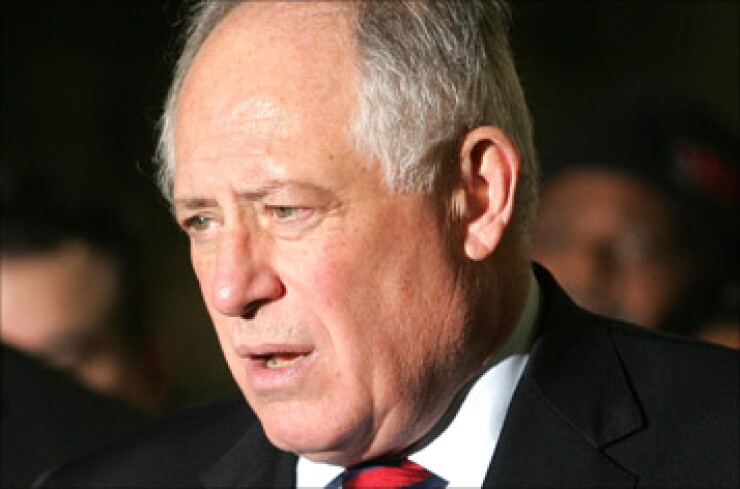
CHICAGO - Illinois Gov. Pat Quinn sought to highlight the state's fiscal strides in his annual state of the state address to the General Assembly Wednesday.
Quinn was keen to talk up accomplishments, capped by the pension overhaul legislation passed in December.
But he provided little indication about how he plans to tackle ongoing challenges that threaten Illinois' fiscal foundation.
Five years ago "Illinois was in a state of emergency, and there was no quick exit. There were no easy solutions," Quinn said. "Recovery would require tough medicine and unpopular decisions and it would take time. But by tackling hard issue after hard issue and never giving up, we are getting the job done. Illinois is making a comeback."
Quinn -- who faces re-election this year along with other state constitutional officers, all House members, and one-third of the Senate -- ticked off accomplishments.
They include spending cuts of more than $1 billion, passage of a $31 billion capital program, a $2 billion Medicaid reform package, and pension reforms for new employees that took effect in 2011.
The strides aimed at bolstering jobs, improving the state's economy and stabilizing its balance sheet were capped by passage of a sweeping pension overhaul excepted to save the state $145 billion over 30 years -- if the changes survive a legal challenge.
"The ratings agencies are sending positive signals for the first time in recent memory. The backlog of bills is going down. Unemployment is at its lowest point since the economy crashed. And, according to the most recent Federal Reserve Bank report, in the next six months Illinois is projected to have the best economic growth of the five largest states in America," Quinn said.
While Quinn sought to cast a positive light on the state's condition, its challenges remain daunting.
Ratings agencies have offered positive comments on the new pension reforms, but Fitch Ratings and Moody's Investors Service have not budged on the state's negative outlook. Standard & Poor's shifted the state's outlook to developing. All rate the state at the low-single-A level, making Illinois the weakest rated state.
Although interest rate penalties demanded by investors are expected to shrink with its pricing next week of $1 billion in general obligation bonds over its sales last year, they will remain steep.
Moody's, in its report published Tuesday ahead of the GO sale, underscored the state's ongoing fiscal stress.
"Illinois' negative outlook reflects our expectation that the state's financial position may deteriorate further because of factors including the loss of revenue from income tax increases set to expire next year," the report said. "However, the implementation of pension reforms passed in December could improve the state's credit standing, by reducing accrued liabilities and making annual funding requirements more manageable."
Moody's suggested that improvement would depend on a "favorable court ruling" on the reforms.
The state expects to save about $1.2 billion in contributions in fiscal 2016 if the reforms withstand a constitutional test being mounted by unions and retirement system participants. Even with those savings, the state faces a $4 billion projected deficit due to the partial expiration beginning midway through fiscal 2015 of a temporary 2011 income tax increase.
Quinn acknowledged that the state still has "financial challenges ahead" but left them for his fiscal 2015 budget late next month.
He offered no clue as to whether he would cut spending to adjust for the expiring tax or press lawmakers to extend it, make it permanent, or adopt another revenue source to replace it.
Absent cuts or new revenue, the state's strides in bringing down its backlog of unpaid bills to about $5.6 billion from a high several years ago of $9 billion would be erased.
Quinn also promoted capital projects.
He announced plans to double the state's $1 billion clean water initiative and expand it to include stormwater and flood control projects. It's unclear how much borrowing that may lead to in the coming years. The Illinois Finance Authority issued $135 million of state revolving fund bonds last November, its first borrowing under the previously expanded program.
The state also is attempting to advance the long stalled third Chicago area regional airport planned for the far southwest suburbs and is seeking private partners along with Indiana for a new toll road linking the state with northwest Indiana.





